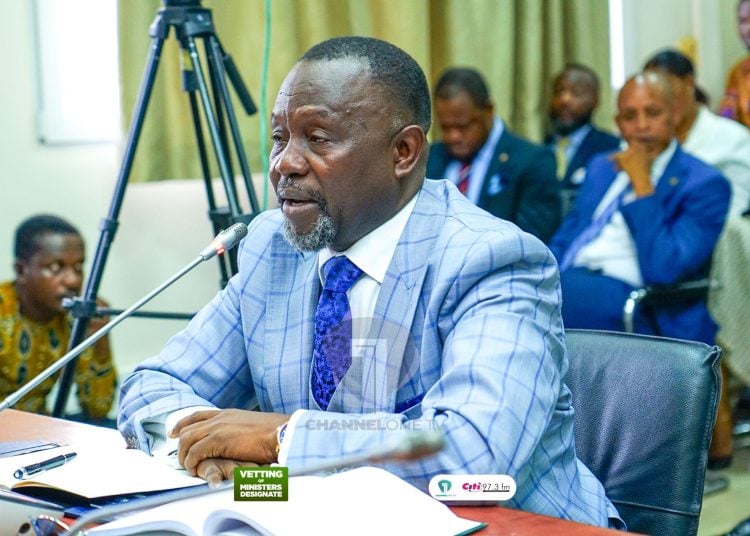Justice Abdulai’s endorsement of Attorney General Dr. Dominic Ayine’s public pronouncements on high-profile cases, especially the one involving former Ghana Signals Bureau Director General Kwabena Adu-Boahene and his wife, underscores a critical debate about transparency, accountability, and the rule of law in public office. Abdulai’s core argument centers on the necessity of open communication from public officials to foster trust and public confidence. He lauds Ayine’s transparent approach as a positive contrast to the perceived opacity surrounding the Office of the Special Prosecutor (OSP). This perceived lack of visibility fuels public skepticism about the OSP’s effectiveness and even its very existence, leading to criticism that could be mitigated through greater openness. Abdulai contends that Ayine’s public declarations, even those admitting guilt in certain cases, strengthen the rule of law by demonstrating a commitment to accountability and open justice.
The crux of Abdulai’s argument revolves around the idea that transparency is paramount in maintaining public trust in institutions like the Attorney General’s office and the OSP. He highlights the inherent danger in the lack of public awareness regarding the workings of institutions tasked with upholding the law. The OSP’s limited visibility, characterized by infrequent court appearances and a seemingly low conviction rate, creates an environment ripe for speculation and criticism. This, Abdulai suggests, undermines the OSP’s authority and effectiveness. He implicitly contrasts this with Ayine’s more public approach, arguing that such transparency, even when it involves admissions of guilt, ultimately strengthens the rule of law by demonstrating a commitment to accountability and openness.
Abdulai further emphasizes the importance of public perception in shaping the legitimacy and effectiveness of these institutions. He argues that even if the OSP is actively working behind the scenes, its lack of visibility creates a vacuum filled by public doubt and conjecture. This, in turn, can erode the public’s trust in the OSP’s ability to effectively combat corruption and uphold the law. By contrast, Ayine’s willingness to publicly address ongoing cases, including acknowledging potential weaknesses in the prosecution’s case, fosters a sense of transparency and strengthens public confidence in the judicial process. Abdulai’s position is that open communication, even if it reveals challenges or setbacks, is ultimately more beneficial than silence, which breeds suspicion and undermines public trust.
The comparison between the Attorney General’s approach and that of the OSP serves to illustrate the broader point about transparency and accountability in public office. Abdulai’s praise for Ayine’s openness is juxtaposed with his implicit critique of the OSP’s more secretive operations. This contrast highlights the potential pitfalls of operating in the shadows, even when the underlying work may be legitimate and impactful. The lack of public awareness, Abdulai argues, can lead to misinterpretations, unfounded criticisms, and ultimately, a weakening of the institution itself. He advocates for a more proactive approach to public communication, emphasizing the importance of keeping the public informed about ongoing investigations and legal proceedings.
Abdulai’s argument goes beyond simply praising Ayine’s actions; it offers a broader commentary on the importance of transparency in strengthening democratic institutions. He suggests that public officials have a duty to maintain open communication with the public they serve, not only to build trust but also to ensure accountability. By openly acknowledging challenges and admitting potential weaknesses, public officials can demonstrate a commitment to the principles of fairness and transparency, ultimately bolstering public confidence in the rule of law. This, in essence, is the crux of Abdulai’s argument – that transparency, even when it reveals imperfections, is essential for maintaining the integrity and legitimacy of public institutions.
In conclusion, Abdulai’s support for Ayine’s public pronouncements stems from a deep conviction about the essential role of transparency in upholding the rule of law. He argues that open communication fosters public trust, strengthens accountability, and ultimately enhances the legitimacy of public institutions. By contrasting Ayine’s approach with the perceived opacity of the OSP, Abdulai underscores the potential dangers of operating in secrecy, even when the underlying work is legitimate. His argument serves as a call for greater transparency in public office, emphasizing that open communication, even when it involves admitting shortcomings, is ultimately more beneficial than a culture of secrecy and silence, which only serves to erode public trust and undermine the foundations of a just and democratic society.


